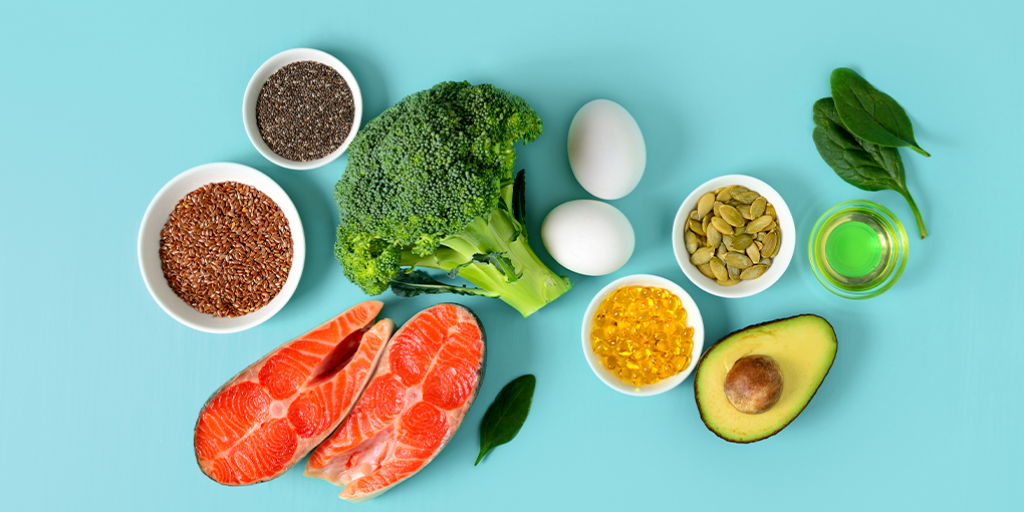Good vs. Bad Cholesterol: What You Need to Know

Good vs. Bad Cholesterol: What You Need to Know
Knowing your cholesterol levels is critical because they indicate your risk for heart disease, the leading cause of death for men and women in the United States. One person dies every 33 seconds from heart disease, making it a health issue none of us should ignore.
Because cholesterol travels through your blood and builds up silently, you may be completely symptom-free until you have a heart attack or stroke – and by that point, you’ve already done some serious damage to your body.
Many misconceptions exist about the difference between “good” and “bad” cholesterol and what it means for your heart health. Take a moment now to learn more about this complex relationship and the critical role that managing your cholesterol plays in your overall well-being.
What Is Cholesterol Anyway?
Cholesterol is a waxy substance that your body needs to perform many essential functions, including building cells, making hormones, producing vitamins, digesting foods, and more.
Cholesterol comes from two primary sources. Your liver makes all the cholesterol you need. Any other cholesterol in your body comes from the foods you consume, such as meat and dairy products. Foods that contain cholesterol are often high in saturated and trans fats, increasing the cholesterol in your body even further – and potentially bringing it to unhealthy levels.
Cholesterol: The Good and the Bad
Cholesterol is transported in your blood and throughout your body by small, round particles called lipoproteins. There are two types of lipoproteins:
- High-density lipoprotein (HDL) – Known as the “good” cholesterol, HDL takes excess cholesterol in your blood back to your liver, where it’s broken down and removed from your body.
- Low-density lipoprotein (LDL) – Often called the “bad” cholesterol, LDL can build up within the walls of your arteries, narrowing them over time and increasing your risk of heart disease, stroke, and other cardiovascular problems.
Factors That Influence Your Cholesterol Levels
Thankfully, many of the factors that contribute to harmful cholesterol levels are within your control, such as:
- Eating too many saturated and trans fats
- Having a body mass index (BMI) of 30 or greater
- Not exercising
- Smoking
- Drinking too much alcohol
However, there are also some factors you cannot control. For instance, as you age, your liver gradually loses its ability to remove LDL cholesterol efficiently. Or your genetic makeup can make it difficult for your body to remove LDL cholesterol from your blood and break it down in your liver.
Certain chronic medical conditions can also cause unhealthy cholesterol levels, including diabetes, chronic kidney disease, lupus, and HIV/AIDS.
The good news is that you’re not stuck with your current cholesterol levels. Changing them in the right direction is possible, but catching high cholesterol early gives you the best chance.
Test Your Cholesterol Regularly
Because you can live for many years with high cholesterol and not even know it, you must get your levels checked regularly. Your healthcare provider will use a blood test called a lipid panel to check your total cholesterol, HDL, and LDL levels, as well as your triglyceride levels (another type of fat in your body that increases your risk of heart disease).
A Test for All Ages
Children should have their cholesterol checked at least once between ages 9-11 and again between ages 17-21. Children and teens who have diabetes or are obese may need more frequent testing.
Healthy adults should have their cholesterol checked at least every 4-6 years. After age 40, many providers recommend testing your cholesterol levels as part of your annual wellness exam.
How to Improve Your Cholesterol
Making lifestyle changes like these can help lower your bad cholesterol (LDL) and increase your good cholesterol (HDL) at the same time:
- Losing weight if you are overweight or obese
- Eating less saturated and trans fats
- Avoiding fatty, fried, and processed foods
- Exercising at least 30 minutes a day
- Not smoking
- Cutting back on alcohol
Managing stress is also key to lowering LDL levels. Stress hormones like cortisol and adrenaline often trigger your liver to produce more cholesterol and triglycerides, putting your HDL levels – and your heart health – in jeopardy.
Cholesterol-Lowering Medications
Sometimes, lifestyle changes aren’t enough to hit your cholesterol target. If your healthcare provider recommends a cholesterol-lowering medication, be sure to take it as prescribed while continuing your lifestyle changes.
Medications known to help increase HDL levels and lower LDL and triglyceride levels include simvastatin (Zocor), rosuvastatin (Crestor), gemfibrozil (Lopid), prescription-level niacin, and others. Ask your provider to learn more.
Common Cholesterol Misconceptions
Now that we’ve covered the facts about cholesterol, let’s review some of the most common misconceptions and why they aren’t true.
Misconception #1: All cholesterol is bad.
As mentioned above, good cholesterol (HDL) has an important job to do – carrying cholesterol back to your liver for removal. Having high levels of HDL cholesterol actually lowers your risk for heart disease. (Sounds like a good thing to us!)
Misconception #2: You’ll feel it if you have high cholesterol.
Again, there are usually no warning signs for high cholesterol. You won’t know until you have a heart attack or stroke, which might be too late.
Misconception #3: You can’t do anything to change your cholesterol levels.
Seeing your doctor, getting your cholesterol levels checked regularly, and making healthy lifestyle changes can all have a positive impact on your heart health.
Visit TrustCare for Cholesterol Testing and Treatment
TrustCare makes it easy to stay on top of your cholesterol levels with convenient testing and treatment. All TrustCare urgent care clinics are open seven days a week with no appointment needed. For ongoing wellness and cholesterol management, TrustCare also offers Primary and Kids care services.
To get started, find a TrustCare location near you.
